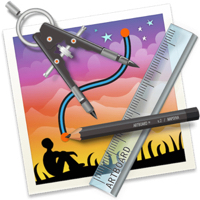Market Research company Newzoo (http://www.newzoo.com) says Apple is dominating the mobile gaming market with 84% of the revenue coming from iOS devices, rather than Android. Now I’d love to see Apple lavish some real gaming love on the Mac.
Of all American mobile gamers, 19 million play on an iPhone, which is 28% of all smartphone gamers, according to NewZoo. An additional 18 million plays games on an iPod Touch. In the tablet gaming space, the iPad is dominant with a share of 60%, or 12.7 million Americans.
Apple’s position is strongest when it comes to revenues. In March 2012, all iOS devices combined earned 84% of mobile revenues generated by the top 200 grossing games in the three stores combined: iPad, iPhone/iPod App Store and Google PlayStore.
With the “halo effect” of the iPad and iPhone, Mac sales are increasing. But I think an Apple push for gaming on the Mac would spur them on more. To do this, I propose two solutions, which I’ve mentioned
° An Apple joystick/gamepad. It could require an OS X upgrade (Mountain Lion, perhaps?) with “hooks” by which game developers could offer support for the peripheral. This is probably a pipe dream, but I know some users are tired of having to jump through a lot of software configuration hoops to play Mac games using a joystick/gamepad rather than the keyboard and mouse.
° The GameDock (based on a concept first developed by “Mac/Life”): based on the success of the iPhone/iPod touch as a gaming platform: “Take this nifty little gaming platform and assign it double duty as both a handheld and a console system. The GameDock accommodates the iPhone and iPod touch and hooks directly to your TV and the Internet. Whether you download a game wirelessly via the handheld or wiredly via the GameDock, you pay just once for two versions of the same title.
“This is where things get interesting. When you download a game straight to your handheld, you can immediately begin playing the touch-controlled version of the game. And it’s glorious! And the next time you seat your handheld in the GameDock, the console immediately sucks down the full, expanded version of the game from the App Store, and stores it in its voluminous hard drive.
“So now you can play the console version of the very same game — with more features, more content, expanded controls, and, thanks to the GameDock’s integrated graphics processor, better visuals.
“And should you first download a game when your handheld is seated in the GameDock, the ‘mini’ version of the game shoots straight into your iPhone or touch, ready to play the next time you disengage from the console and hit the road.
“Of course, the GameDock scheme wouldn’t be quite so interesting if not for its seamless integration of content. For some game titles, the handheld version of the game exists as sort of an autonomous ‘mini game’ — its gameplay model runs independent of the console version’s. But for other titles, the handheld and console versions of the same game work together. Gameplay models obviously differ between the mobile and full versions, but each version hooks into the other in creative, novel, symbiotic ways. And through the power of syncing, your progress in level- and achievement-based games is saved and always propelled forward, regardless of which version you’re playing.”
Pretty clever, huh? But what if, instead, Apple used the GameDock as a way to sell more Macs by offering Mac-only gaming options that tie in with the iPhone and iPod touch? In my scenario (which, I admit, might not be technically possible), Apple wouldn’t enter the console game wars, but would turn the Mac into Wii-like computer gaming system.
Instead of connecting to a TV, the GameDock would connect to a Mac (and perhaps be built into high-end iMacs), allowing Apple computers to run the “bigger” versions of the “mini” games on the iPhone and iPod touch that “Mac|Life” suggested. The GameDock would also allow multi-touch, accelerometer-equipped game controls (made by Apple, natch) to be used with the Mac games.
Could this happen? Maybe, maybe not. But Mountain Lion is adding Game Center support …
— Dennis Sellers



